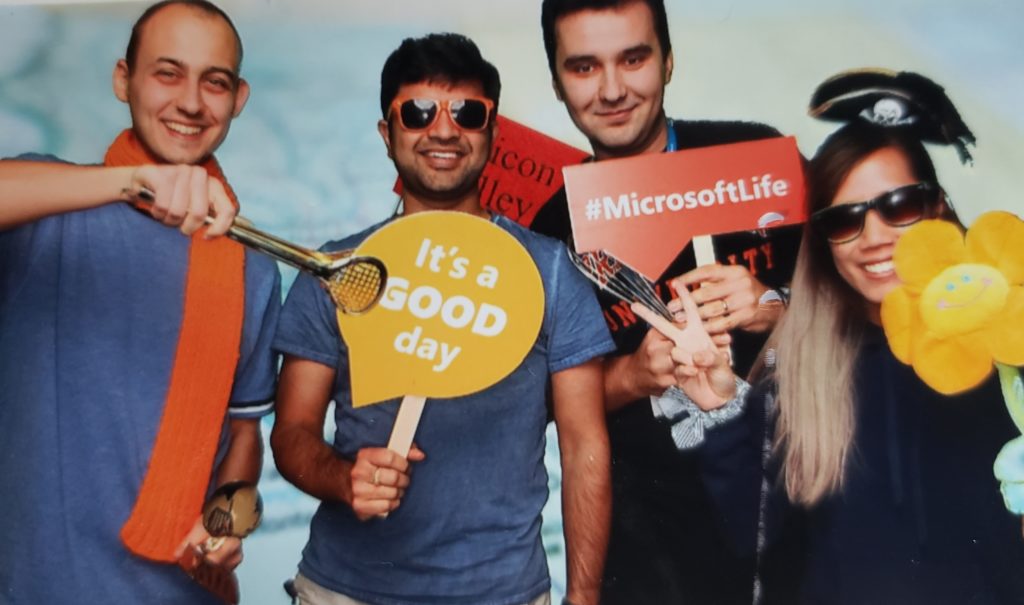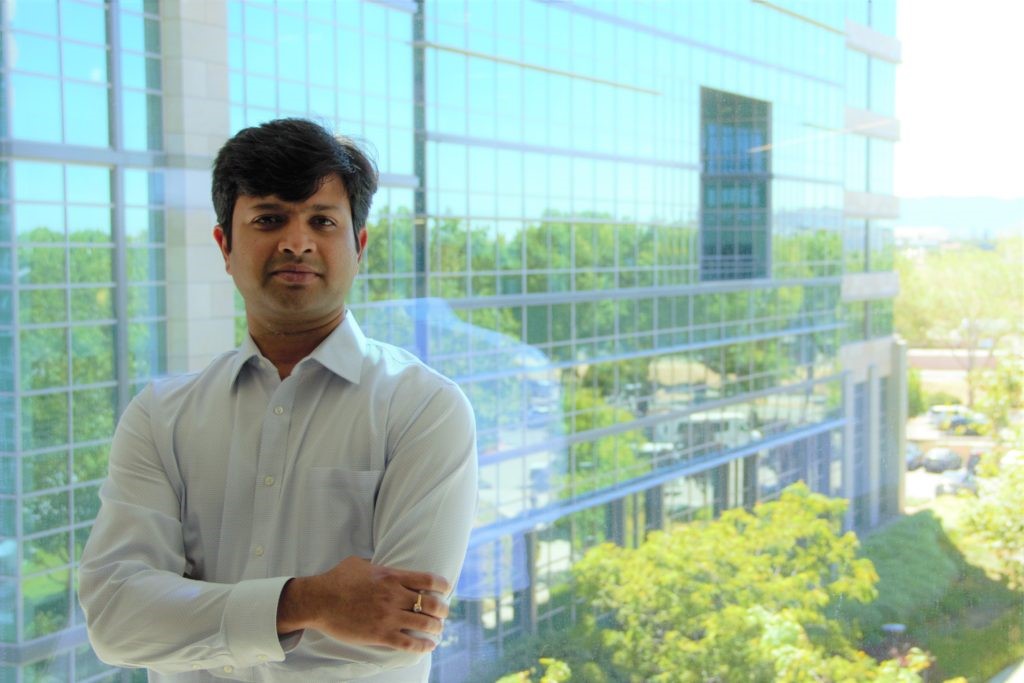A person’s individual road to growth is not linear. It can take unexpected turns, some clearly forward, and others more u-shaped.
“When I started out many moons ago, I never thought I’d be a boomerang!” laughs Meghan Herring, a Bay Area-based human resources strategist who has not only helped facilitate the return of many former Microsoft employees, but also her own. “You’d be surprised at how often this happens.”
Microsoft values and supports “boomerang employees,” an increasingly not-so-rare breed who come back to the company and culture knowing both will help them continue to grow their careers.
We recently spoke with several employees who returned to the company after absences ranging from several months to several years. What emerged were some revealing thoughts on why the grass appeared greener on the other side of the fence — and what ultimately led them back to where they started.
The allure of the startup
Last year, the Bay Area accounted for 44 percent of total venture capital spending in the U.S. and about 22 percent globally. The allure of the startup — and the fantasy of joining a small company and transforming it into a household name — is undeniably a strong one. This is why it’s no surprise leaving can often boil down to the perceived pros and cons of a “big company” vs. a “little company.”
“When I was a new grad, I was told that working at a big company would give you structure and teach you good practices, so my goal was to join a big company,” remembers Joanna Leong, a software engineer who helped develop Azure Firewall in 2017 and 2018. “After three years at Microsoft, I had the experience of a big company, but I wanted to see what the tech world outside of Microsoft looked like.”

(Joanna Leong with her original Azure Firewall teammates (left to right): Daniel Manesku, Murali Sangubhatla, Stefan Manea, Joanna Leong)
“I co-founded a startup while I was away and my pitch for hiring was, ‘Don’t join a big company, join a company in the early stages of its explosion to catapult your career,’” recalls Azure principal software engineer manager Murali Sangubhatla, who spent six years away from Microsoft, at startups he joined and created. “But now that I’ve returned to Microsoft, I believe we need to refine that statement. Now, I’d say find a team, find the passion you’re excited about, and when you hook up with that team trending upwards, you’ll get far more than you would out of a startup.”
Those who’ve worked in both worlds point out the reality behind the romance. Smaller staffs mean longer hours. A clear vision for growth can get murky based on external factors or how much funding a company has. New leaders learning as they go don’t always have the answers to key questions being asked. Leong and Sangubhatla both observed that Microsoft’s proficiencies in talent recruitment result in an environment where you’re constantly learning from the best.
“In general, I sensed the culture at Microsoft as healthier, enabling. It values what you bring to the table and is more encouraging,” Sangubhatla explains. We have challenges here, but all the talent, mixed with how humble they are, makes the Microsoft culture special.”
Keeping such insight in mind, Sangubhatla realized that the key to his personal contentment is working for a “big company” while maintaining the mindset of a small one.
“When I introduce myself these days I say, ‘Hey, I’m a startup guy.’ It raises some eyebrows, because how could I be a startup guy at Microsoft?” – Murali Sangubhatla
Sangubhatla was part of the team that built the first version of virtual server migration, then joined another team that oversaw the development of the first mid-market server, and then became an early member of Azure networking. “Even at such a large company, I’ve been fortunate to be a part of little startup-minded teams taking on big challenges and tackling open-ended problems,” says Sangubhatla.

(Murali Sangubhatla enjoys working on startup-minded teams within Microsoft because of the greater impact they can have on people’s lives)
A tech company’s evolution is never complete
“The Microsoft I started with, and the Microsoft I returned to today, is very different,” says Herring, who previously worked for the company from 2006 – 2016. “People who left the Microsoft of the past may be very interested in coming back because of the leadership, culture, and technology offerings we have now.”
Of course, Microsoft has come a long way since it was founded in 1975 as the original “garage start-up” with big dreams and a handful of employees. With each passing year, the company continues to evolve, and there’s no denying that when Satya Nadella was announced as CEO in 2014 and revised Microsoft’s mission statement to “empower every person and every organization on the planet to achieve more,” a new era began.
“I left Azure during its initial phases and went to pursue a startup,” explains Sangubhatla, a founding software engineer of Windows Azure Networking who left in 2011, then returned under the new regime to lead the Azure Firewall team. “I watched Azure’s explosive growth as an outsider, and wanted to be part of the journey.”
Herring says many returning boomerangs share a newly-developed appreciation for the seemingly unlimited growth opportunities presented by Microsoft’s never-ending evolution.
“There are lots of opportunities in the land of Microsoft, if you open your eyes to them.” – Meghan Herring
“Not every company has so many options to grow, stretch, and evolve yourself,” she observes. “At Microsoft, there are so many different businesses, groups, products, services, and locations that open up opportunities to grow, wherever your passions are.”
Culture is key
After two years at a smaller company, Leong reached the point where she wanted to be surrounded again by people like Sangubhatla — whose boomerang experience dovetailed with her own.
“I really missed managers like Murali who challenged my weaknesses, pushed me to grow into my strengths, and did it all while still ensuring I was happy on the team,” she says. “Ultimately I learned that I missed Microsoft a lot, both the people and the culture.”
“Joanna and I kept in close touch, we all did because as a team we were very close,” says Sangubhatla. “Late last year, she said she’d be open to coming back. I did not have openings on my team, but I did on my sister team, so we brought her in.”
“It’s the company culture and values that boomerangs come back for,” Herring says of people like Sangubhatla and Leong. “They have connections to people they’ve worked with and want to work with them again.”

(Meghan Herring, upon returning to Microsoft, found the company had evolved and was much different than when she left in 2016)
Starting up, not over
These boomerangs agree that it’s important to develop a clear understanding of what you want in your career — but remain open-minded enough to realize it might be somewhere you’ve already been.
“Free food, gym access, the Garage — which I absolutely love, are all things I missed when I left Microsoft. I also grew a stronger appreciation for the opportunities Microsoft provides like attending conferences or enrolling in a Master’s program,” says Leong. “I know now that Microsoft is a great place to build a career because it provides the resources to continuously learn, branch out to any area, and a culture that drives me to do my best.”
Whatever the reason for their return — benefits, products, culture, or otherwise — boomerangs are quite common in the hallways and meeting rooms of Microsoft. “There are many,” says Sangubhatla. “My manager is a boomerang, I can think of two other peers on other teams who are boomerangs, and they’re all doing fantastic.”
“I value what Microsoft can offer me in my career while being a mom, raising kids, and managing crazy work hours between myself and my husband,” Herring says. “When I started looking at what I truly value, I was able to check all those boxes with Microsoft. That’s how I knew that returning was the right thing to do.”
Our doors are always open, so if you’d like to come back to Microsoft local career opportunities can be found here: https://aka.ms/MicrosoftBayAreaCareers



